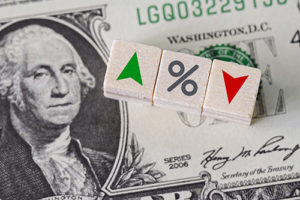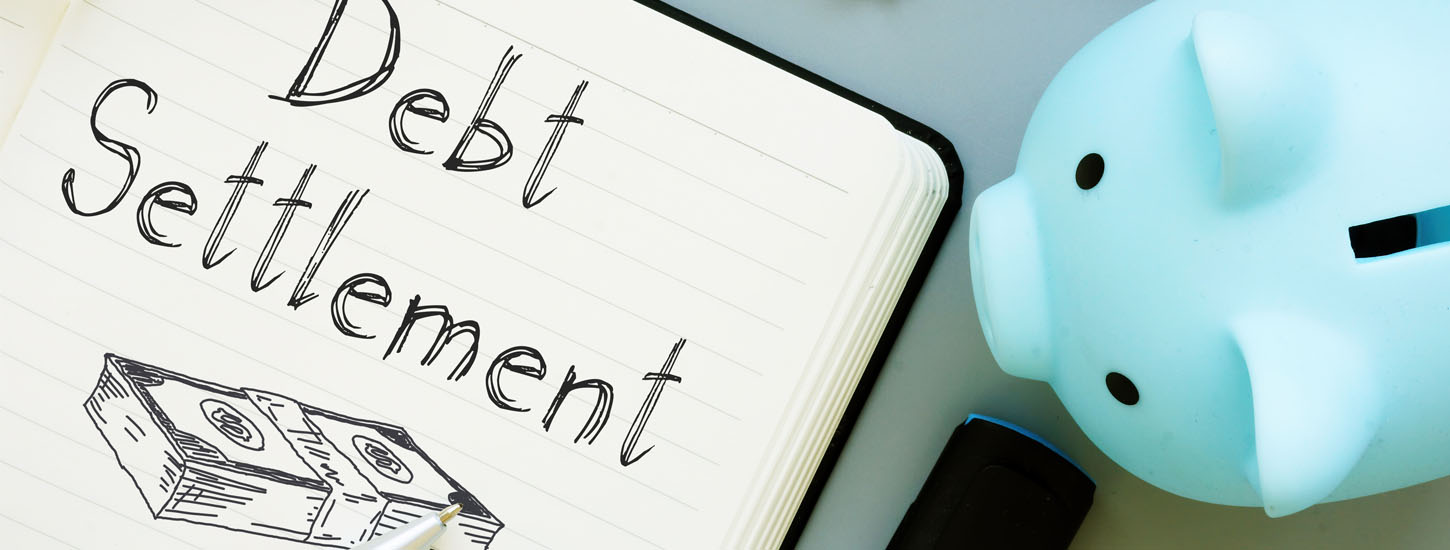The reality about debt is that it’s easy to get into, but difficult to get out of. According to the Federal Reserve Bank of New York:
- Total household debt is at $17.80 trillion
- Total mortgage debt is at $12.52 trillion
- Total auto loans are at $1.63 trillion
- Total credit card debt is at $1.14 trillion
Depending on the amount of debt you owe and your financial situation, it can take several years to eliminate your debt. Your personal spending habits and your income are key factors in your capacity to pay off what you owe.

This is where debt consolidation vs. debt settlement is routinely researched.
Let’s look at the differences between the two repayment strategies and which option may be right for you.
The Difference Between Debt Settlement and Debt Consolidation
Debt settlement and debt consolidation are options you can consider when you have personal debt you’re having difficulty repaying. While these two repayment options employ a different approach, their goal is the same: to help you pay off debt in a way that’s advantageous to your situation.
But what’s the difference between debt settlement and debt consolidation?
What Is Debt Settlement?
Debt settlement, or debt relief, is a strategy where you reach an agreement with your creditors to pay less than the amount you owe.
If it sounds too good to be true, that’s because it usually is. Creditors only agree to a debt settlement if they truly believe you aren’t able to pay off the full amount.
Typically, accounts must be quite delinquent or nearing a “charge–off status” (meaning the creditor considers your debt a loss already) before these last–resort opportunities become available to consumers.
If this option is available, you can offer the creditor a lump sum to pay off the discounted debt in one go.
For instance, if your total debt amount is $10,000, you may negotiate with your creditor to pay the debt for a lump sum of $5,000 if they offer a 50% settlement. The creditor may also agree to a series of installments instead of a lump-sum payment.
Are There Professional Debt Settlement Negotiators?
Yes, there are plenty of professional debt settlement reduction companies. However, you must thoroughly review them before using their service. Creditor negotiation scams are extremely common. A fake company will charge you a high fee upfront, instead of after the debt is settled, and then do nothing to communicate with your creditor(s).
Even if you use a reputable outside company to settle your debt, it’s imperative that you understand the true cost and total savings to you (if there are any) when everything is settled. Debt settlement companies often have fees that can offset any savings you gain from a debt settlement.
Fees can be anywhere between 15% and 25% of the debt settled, so the greater your debt, the higher any associated fees will be.
That means that on an original debt of $10,000, you could end up saving only $3,500 on the high end or just $500 on the low end.
Is It Worth Negotiating Debt Settlement on My Own?
Maybe you want to try negotiating your debt yourself. Is it worth the effort? For the most part, it’s not worth the extra stress it causes you. Negotiating by yourself means you’ll be directly communicating with creditors.
A creditor will use every tool they have to ensure they get as much money from you as possible—after all, that is their job. If you aren’t familiar with finances or negotiating, it can become overwhelming quickly. This is exactly why professional negotiators are so popular.
If you have several creditors, you will have to negotiate with each one to settle your debt for a lesser amount. If you choose to go this route, it’s also important to remember that creditors are not obligated to accept your offer. Some may even refuse to negotiate with you or a debt settlement company.
Key Takeaways
- Debt settlement reduces the debt you owe by offering an immediate payment for a lower amount.
- There are many scams in this space to be wary of
- Legitimate negotiators require a large fee
- Being your own negotiator isn’t worth the effort
What Is Debt Consolidation?
Debt consolidation is a process where you roll multiple debts into one. You can consolidate different types of debt, such as medical debt or credit card debt.
People consider debt consolidation so they have one debt payment each month—and hopefully, a lower interest rate so they pay off their debt faster.
Different Types of Debt Consolidation
There are many ways you can consolidate your debt.
1. Debt Consolidation with a Loan
Consolidation loans are offered by many financial institutions, such as banks, credit unions, and online lenders. Simply put, you will only have to pay one lender instead of multiple lenders when you opt for debt consolidation, and ideally, you’ll qualify for a low interest rate.
Consolidation loans may be secured or unsecured. In secured consolidation loans, you will have to put up one of your assets as collateral. For instance, if you take out a home equity loan to consolidate your debt, your home becomes the collateral. This assures the lender that you will pay the debt or else risk losing your collateral.
Unsecured debt requires no collateral. These are usually offered to those who are deemed “safe” due to a good payment history or high credit score.
2. Nonprofit Debt Management (Debt Consolidation without a Loan)
A popular option that doesn’t require a new loan is enrolling in a debt management plan with a nonprofit credit counseling organization, like Debt Reduction Services, Inc.
They focus on creating a smaller monthly payment by consolidating all the debts into one monthly payment under arranged terms with your creditors. These terms focus on reducing the monthly payment, lowering interest rates, and stopping late or over–limit fees from accumulating.
Typically, debt management plans are paid in full in five years or less. The accounts are closed to further charging, and when one account is paid off, the amount of that payment is used to pay more towards the remaining debt.
Call Debt Reduction Services, Inc. today
3. Credit Card Balance Transfer
Credit card companies offer zero percent or low-interest transfer cards to encourage people to use their cards to consolidate credit card debt. However, this low interest rate is only for a limited time, so you should only consider this option if you know you’ll pay it off before the promotion is over.
There can also be a transfer fee at the beginning, which you should take into account when considering any savings.
If you need a refresher course on credit card basics, we have the perfect course for you.
4. 401(k) Loan
You can try borrowing against your 401(k)—if you have one. This method doesn’t require credit checks, but it’s dangerous because you can drain your retirement funds. You may not have enough time to build it up again. Plus, you lose the interest it gains.
Key Takeaways
- Debt consolidation puts all your debts in one place, so you have one payment
- There are multiple options for consolidation, but some are more dangerous than others
Debt Consolidation vs. Debt Settlement
So, in the debt consolidation vs. debt relief debate, which is better? It’s hard to say because it depends on your situation, but here’s a pros/cons chart of each method to make the decision easier.
Debt Settlement Pros and Cons
Pros:
- Pay a reduced amount: One advantage of debt settlement is that you get to pay an amount that’s lower than your original debt, provided your creditor agrees to your offer.
- It’s a bankruptcy alternative: For those who don’t want to declare bankruptcy, debt settlement can be a short-term solution. If you’re able to negotiate with your creditor and they agree, you can wipe your debt with a lump-sum payment instead of declaring bankruptcy.
- Suited for late payments: If you’re already behind payments for more than a year and are at risk of being sued by your creditor, you might be able to negotiate for a debt settlement. This can be less financially damaging than filing for bankruptcy, though there will still be damage to your credit score.
Cons:
- Negative impact on credit score: Not being able to pay the full amount of debt reflects negatively on your credit score. Further, since debt settlements are typically pursued by those who are late in payments, these late payments also negatively impact your credit score.
- Negative impact on credit report: Like your credit score, your credit report will also be affected negatively. Your history of debt settlement will remain on your credit report for seven years. This can make it difficult for you to get additional credit from lenders in the future.
- Penalties: Often, hiring a debt settlement company to negotiate for you means you will have to withhold payments to your creditors. This can rack up additional late fees, interest, and other penalties to the amount you already owe.
- Additional charges: In addition to working with a debt settlement company, you will likely have to pay their service fees.
- Results are uncertain: As mentioned, your creditors are not obligated to accept settlement offers. Some may even refuse the negotiations altogether, whether you do this personally or through a debt settlement company.
- Tax consequences: Since you did not pay the full amount for your debt, the IRS might consider the amount forgiven as income, thus incurring taxes.
- Can be difficult with multiple creditors: While debt settlement can theoretically work with one creditor, negotiating with multiple creditors can be difficult and costly. This is especially true if you’re working with a debt settlement company. They might require you to pay service fees for each debt settlement they negotiate on your behalf.
- Have to be wary of scams: There are many debt settlement scams you have to worry about. If you fall victim to one, you could end up in more debt.
Debt Consolidation Pros and Cons
Pros:
- Simplified process: Instead of making multiple separate payments, debt consolidation allows you to pay all your bills to one lender. You have one monthly deadline instead of having many that you must keep track of separately. Also, with nonprofit debt consolidation programs, you can still consolidate your debt, even if you have bad credit.
- Lower interest rates: Theoretically, your interest rates should be much lower when you opt for debt consolidation. For instance, if you’re late paying your credit card bills, the card company can raise your interest to about 25% to 30% of your balance. If you get a debt consolidation loan, you will pay between 8% and 15% interest in most cases.
- Improved credit score: Paying off all your debt should reflect positively on your credit score.
- Reduced psychological burden: Often, paying for multiple debts can affect you psychologically. You may feel as though it’s hopeless to wipe everything clean, which can lead to stress and even illness. Debt consolidation eases this burden as you will only have to deal with one payment to one lender each month.
- Different options: There are many consolidation methods, making it easy to find the right one for your situation.
Cons:
- Debt is not reduced: While it’s convenient to have all your debts into one consolidated payment, this doesn’t mean the amount will be reduced. Only the interest rate may potentially be reduced. You still must pay the full amount for your debts.
- Good credit score is needed when seeking a consolidation loan: Your credit score may be improved through debt consolidation, but to qualify for a consolidation loan, you will need a good credit score. With a poor credit score, your application for a debt consolidation loan may be denied. Similarly, the interest rate for the consolidation loan might be like the interest rate on your credit cards. Individuals don’t need a good credit score when using a debt management plan.)
Time frame: The difficulty in managing debt often lies with the time you must spend making repayments. If you opt for debt consolidation, you may have to spend an average of two to five years making payments.
When to Choose Debt Consolidation vs. Debt Settlement
When considering debt consolidation vs. debt reduction, it’s important to take stock of your overall financial standing before choosing one approach over the other.
In the case of debt settlement, this approach can be risky but perhaps worth pursuing when you:
- Have a substantial amount of debt from one lender
- Are extremely late with payments
- Are attempting to avoid bankruptcy
- Are about to be sued by a creditor
- Have a lump sum ready to offer
- Are prepared to deal with debtors on your own or with a professional
- Have a low credit score
On the other hand, debt consolidation may be the more affordable and safer route for individuals who:
- Are still on time with their balances
- Don’t want to deal with an overwhelming amount of bills each month
- Have good credit
- Have a stable income
- Have a plan to stay out of debt
- Have multiple debts with high interest rates
- Can pay off the debt before the promotional period ends (when using a card)
- Are prepared to spend years paying off the debt
Key takeaway: Whether debt settlement or debt consolidation is better depends on your situation. There is no perfect answer.
Get Help with Debt Management Today
Whether you choose debt settlement or debt consolidation, make sure that the approach will be advantageous to your personal financial situation. Moreover, make every effort to curb your spending and not incur more debt while making repayments.
Contact us today to get help with your debt.
About the Author
Rick has been in the financial and credit counseling industry for over 20 years. He is currently a HUD certified housing counselor and has well over a decade of experience as a certified credit counselor. Rick writes regularly on matters relating to consumer finances and is a contributor for many publications on these topics.












